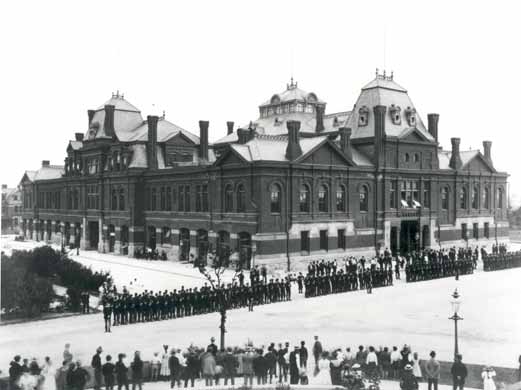|
On May 11, 1894, workers at the Pullman Railroad Car Factory started a wildcat strike. During a severe recession (the Panic of 1893), the Pullman Palace Car Company cut wages as demand for new passenger cars plummeted and the company's revenue dropped. A delegation of workers complained that wages had been cut but not rents at their company housing or other costs in the company town. The company owner, George Pullman, refused to lower rents or go to arbitration. Many of the Pullman factory workers joined the American Railway Union (ARU), led by Eugene V. Debs, which supported their strike by launching a boycott in which ARU members refused to run trains containing Pullman cars. At the time of the strike approximately 35% of Pullman workers were members of the ARU. The plan was to force the railroads to bring Pullman to compromise. Debs began the boycott on June 26, 1894. Within four days, 125,000 workers on twenty-nine railroads had "walked off" the job rather than handle Pullman cars. The railroads coordinated their response through the General Managers' Association, which had been formed in 1886 and included 24 lines linked to Chicago. he railroads began hiring replacement workers (strikebreakers), which increased hostilities. Many blacks were recruited as strikebreakers and crossed picket lines, as they feared that the racism expressed by the American Railway Union would lock them out of another labor market. This added racial tension to the union's predicament. Read more about the Pullman Strike and it's impact on the US labor movement.
0 Comments
Leave a Reply. |
CTROL BlogThis blog will be used by Center Staff to post articles addressing issues concerning the Rule of Law and how it is taught and understood in our communities, nation, and world. Categories
All
|

 RSS Feed
RSS Feed